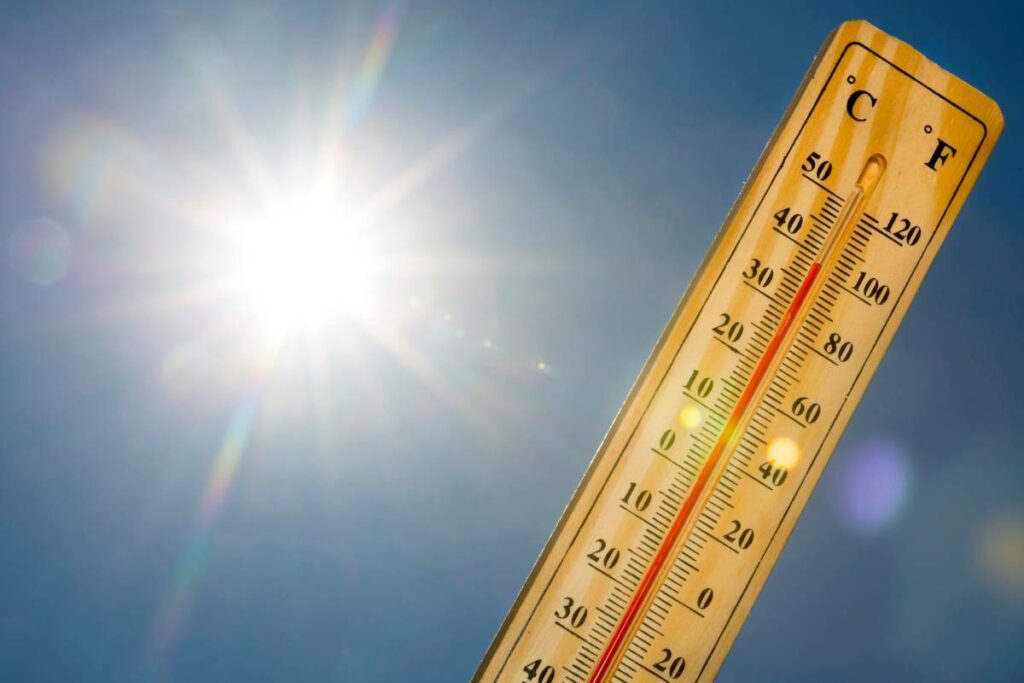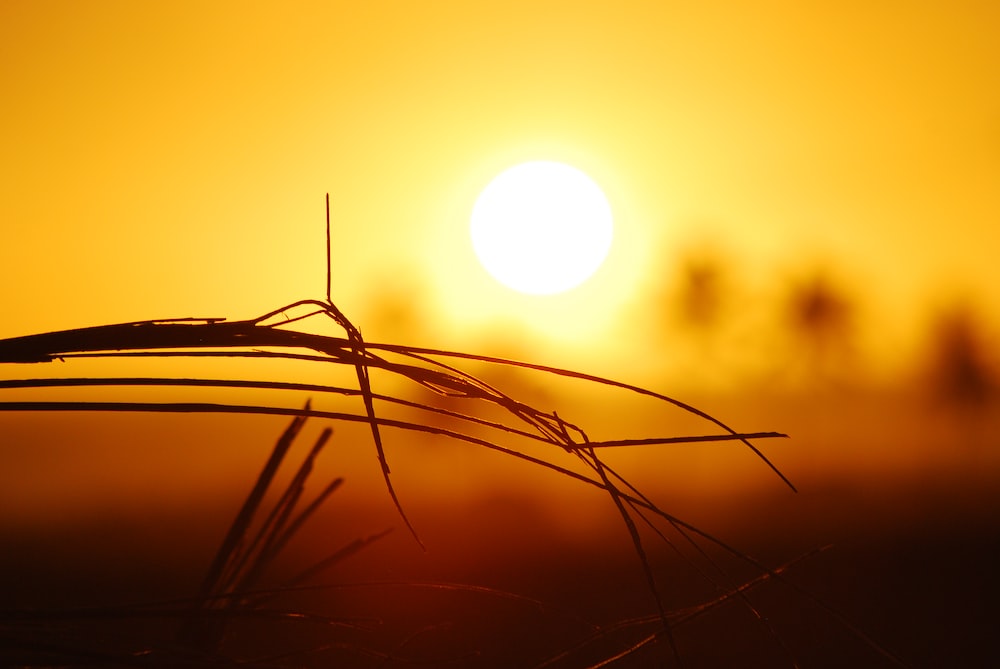One good thing about being a “denier” is that you don’t have to deny the obvious. Including that climate always changes, that there’s always been bad weather, that there was a Medieval Warm Period and so on. But also that sometimes things happen that seem to fit the alarmist narrative. For instance it was very hot in the American west in June. And if it becomes a pattern, and not just in one region, it will be evidence that the planet is warming. But so far it’s not. Oregon and its neighbours were sweltering and then the heat reached the formerly cool Canadian West, which the Weather Network promptly quoted a member of its own staff as happening because “Climate change has altered our atmosphere”. But much of the United States, Canada, and other places from India to Antarctica, are not setting records. So if you want to say global warming has hit Oregon, you need to explain why it missed so many other places. Unless you want to deny the obvious.
Cliff Mass gives some interesting reasons for why it was freakishly hot in western Oregon and Washington state. And he says “To get this amazing event, a series of ingredients had to occur at the same time and same place.” But of course alarmists will say true, but warming makes it more and more likely that those ingredients will come together.
In fact NPR did exactly that. “It might be tempting to shrug at the scorching weather across large swaths of the West. This just in: It gets hot in the summer. But this record-setting heat wave's remarkable power, size and unusually early appearance is giving meteorologists and climate experts yet more cause for concern about the routinization of extreme weather in an era of climate change.” And in another post Mass does say “a number of people have asked about the role of global warming on this event. Is global warming contributing to this heatwave? The answer is certainly yes. Would we have had a record heatwave without global warming. The answer is yes as well.” But, he adds, “the temperature anomalies (differences from normal) during this event will reach 30-35F. The proximate cause of this event is a huge/persistent ridge of high pressure, part of a highly anomalous amplification of the upper-level wave pattern. There is no evidence that such a wave pattern is anything other than natural variability (I have done research on this issue and published in the peer-reviewed literature on this exact topic). So without global warming, a location that was 104F would have been 102F.”
Rolling Stone seems unimpressed and served up some very hot rocks indeed: “Can We Survive Extreme Heat?/ Humans have never lived on a planet this hot, and we’re totally unprepared for what’s to come” (by an author with an MFA from Columbia University). Except it was written in 2019. Still, you might say look, he predicted more heat waves, now he’s vindicated. National Geographic killed us off too: “Too hot to live: Millions worldwide will face unbearable temperatures/ A warming climate is likely to push entire regions out of their comfort zones—and make staying cool a matter of survival.” But here’s the problem.
In Rolling Stone, Jeff Goodell wrote “As the climate warms, heat waves are growing longer, hotter, and more frequent. Since the 1960s, the average number of annual heat waves in 50 major American cities has tripled. They are also becoming more deadly.” But just as with the hurricanes and wildfires, they’re not. Anecdotally, NBC wrote “Worst heat wave in 12 years coming to the Pacific Northwest/Seattle could soar to 100 degrees, a rare feat that has only happened two other times in recorded history”. One being in 2009 and the other … they don’t say. Why not? Was it in the 1930s?
Likewise the New York Times chortled “Climate change has plunged the Western U.S. into its worst drought in two decades. And a record-breaking heat wave only made things worse.” And of course “Experts say global temperatures will keep rising as countries — and companies — fail to limit their planet-warming emissions.” No subtlety there.
Not much research, either. The American government keeps statistics on drought and there’s absolutely no evidence that they’ve become more common since 1900 (see chart here). Despite which NBC threw in that “With climate change making heat waves three times more likely compared to 100 years ago and contributing to the current 22-year megadrought, wildfire seasons are starting earlier and lasting longer into the year. As the gap closes, experts say there isn't so much a defined wildfire season in the West anymore, but instead it lasts year round.” Although, again, wildfires aren’t becoming more common in the United States (or Australia). In fact they’re becoming less so.
OK, what about heat waves? Well, in the United States, according to the 2018 US National Climate Assessment (p. 21)
Recent droughts and associated heat waves have reached record intensity in some regions of the United States; however, by geographical scale and duration, the Dust Bowl era of the 1930s remains the benchmark drought and extreme heat event in the historical record. (Very high confidence)
The 1930s sure were hot. What was that about? As for Rolling Stone’s increasingly deadly heat waves, Bjorn Lomborg just wrote in USA Today that “Heat deaths are declining in countries with good data, likely because of ever more air conditioning. This is abundantly clear for the United States” which he thinks “has seen increasing hot days since 1960 affecting a much greater population. Yet, the number of heat deaths has more than halved…. More important, cold deaths vastly outweigh heat deaths worldwide. This is not just true for cold countries like Canada but also warmer countries like the United States, Spain and Brazil. Even in India, cold deaths outweigh heat deaths by 7-to-1. Globally, about 1.7 million deaths are caused by cold a year, more than five times the number of heat deaths.” So of course to the extent that the planet is warming, it’s saving lives.
What’s also problematic is that while global warming is, one would suppose, global in its globality, much of the Northern Hemisphere has been unusually cold this spring. Including Germany in May. And Ottawa in June. And parts of the Canadian west surprisingly near Washington and Oregon. Not to mention Scott Base Antarctica, which we realize you wouldn’t expect to be warm but which at -81.7°C would sequester CO2 the rock-band way, by turning it into dry ice (the freezing point of CO2 being -78°C). And which has endured not just a cold spike but an untypically cold winter.
So yes, it was weirdly hot in the American northwest. And if what’s now weird becomes normal, it will be evidence that the planet is warming. But so far it’s just weird, and we deniers don’t have to deny it.
P.S. As of this writing, NBC was calling for temperatures to soar further and cited a professor of public health that “that the heat wave is a sign of what to expect in the future as climate change reshapes weather patterns worldwide.” But Cliff Mass was predicting on his weather blog that the heat would give way to dramatic cooling on Monday June 28. If so, what will alarmists say? Why, that “extreme weather” is the real meaning of “global warming”. And then they will deny that it used to happen.



Tony Heller at RealClimateScience.com always provides useful data to debunk the Chicken Littles of climate alarmism. See for example https://realclimatescience.com/2021/06/global-warming-has-begun-2/
I suppose we need to put it into baking bread secondary to that damn yeast admitting all that carbon dioxide. Heaven for bid beer and of course Coca-Cola and Canada dry need to stop poisoning the atmosphere with their carbonation. Please spread the word no beer bread or Coke
We all know by now that Lytton BC set a couple of heat records. And then the whole town burned down. The only thing mentioned as cause of the fire was...drum roll....climate change
Funny thing is skeptics were openly criticized here in Portland Oregon just 5 months ago when we called the late snow in February, that paralyzed the city of Portland for 2 days, "a foot of global warming".